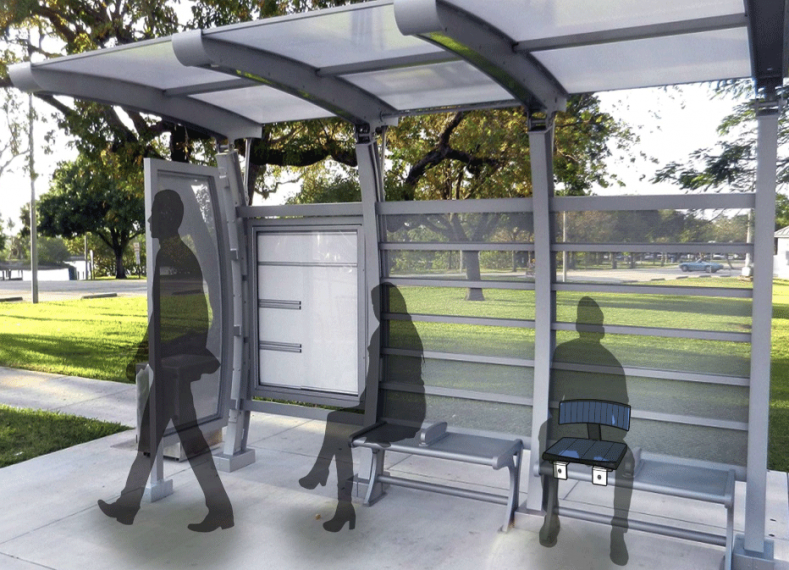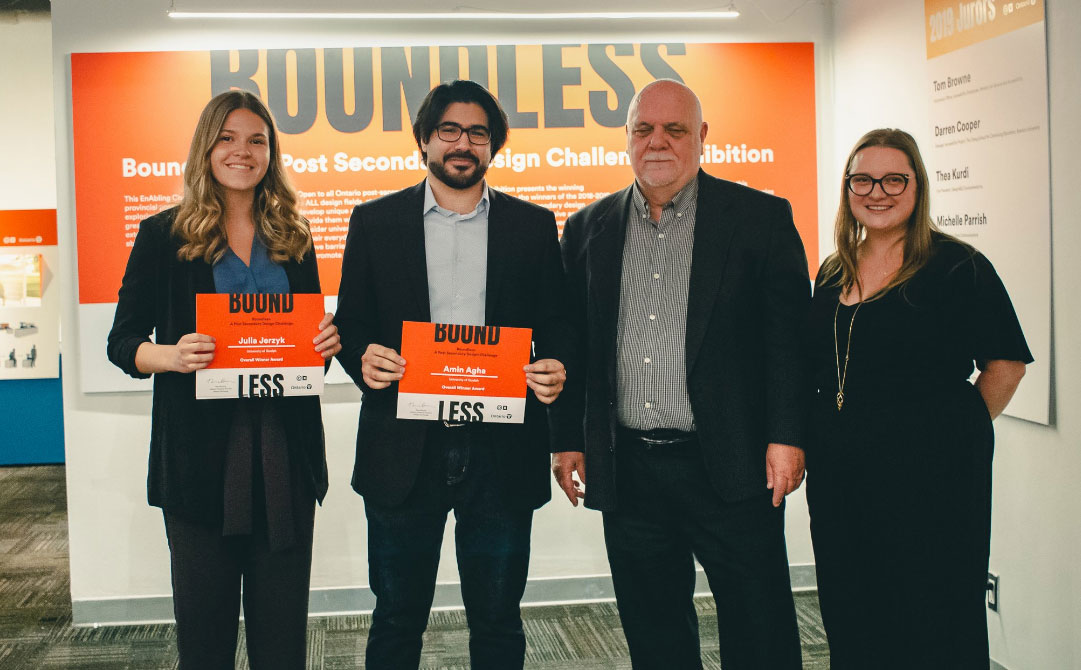
A trio of University of Guelph students has won top prize at an Ontario-wide design contest focused on creative public accessibility solutions.
U of G landscape architecture students Adam Persi, Julia Jerzyk and Amin Agha were the overall winners in Boundless: A Post-Secondary Design Challenge for their submission called ASSIST.
The ASSIST is an ergonomically-designed public bench seat that makes sitting more comfortable for those who are aging or disabled.
“Our team has found that today’s benches do not encourage long-term sitting, as concrete and metal materials do not retain heat, and wood is often flat, resulting in concentrated pressure points between the user and the bench,” the team explained in their submission.
The seat can be affixed to any flat bench surface and features a spring that holds the seat at a 50-degree angle to meet the user until they put their weight down to sit.
When the user wishes to stand back up, they simply push a latch and the spring rises slowly to its original position, bearing some of the user’s weight to help them stand.

The ASSIST seat consists of recycled, industrial by-products and high-density polyethylene, allowing it to be moulded into an ergonomic form. It’s also both solar- and stain-resistant as well as sustainable.
Another U of G student team placed second in the contest with a device that interacts with intersection crosswalks.
Crossing times at intersections currently are based on average walking speed and are focused on keeping vehicular traffic moving. Pace, designed by landscape architecture students Victoria Ventzke, Lauren Dickson, Reilly McCleary and Calum Molitor-Dyer, is an RFID (radio-frequency identification) system that can adjust a crosswalk signal to give people with physical disabilities more time to cross.
The advantage of the Pace system is that it extends the crosswalk time only on a user-need basis.
To explain the system, the team chose a busy intersection in downtown Guelph as their pilot: the corner of Quebec Street and Wyndham Street. The current time allotment for crossing is 15 seconds; the Pace system would extend this time to 30 seconds to allow those with visual or physical disabilities to cross more comfortably.

The Boundless competition is hosted by the Design Exchange in Toronto and the Government of Ontario to develop solutions for accessible navigation of public spaces such as trails, play spaces, service counters and fixed waiting areas.
The province-wide competition coincided with National AccessAbility Week and recognized proposals that showcase innovation in accessible and universal design.
The U of G participants in the competition were students in the landscape architecture Integrative Design studio, with Profs. Sean Kelly and Nadia Amoroso acting as faculty supervisors.
The contest’s winning entries are being showcased in a free exhibition at the Design Exchange until July 1. More information is available on the Design Exchange website.